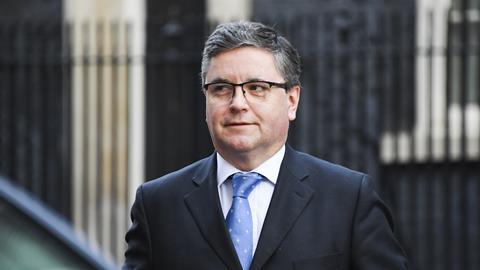The lord chancellor will be asked to use all his powers to prevent the legal aid supplier base from collapsing by Christmas.
In a briefing prepared for justice minister Alex Chalk MP ahead of a meeting next week, the Legal Aid Practitioners Group warns that without further action, many firms will fold over the next few months ‘and by Christmas there will not be a provider base left to underpin the justice system that this country needs and deserves as it tries to climb out of this crisis’.
Although the Legal Aid Agency has introduced some operational and financial measures to support firms during the pandemic, the group says they do not provide sufficient flexibility. Many wider relief measures are not open or relevant to legal aid practitioners.
The group says the lord chancellor, Robert Buckland MP, has wide discretionary powers under the Legal Aid, Sentencing and Punishment of Offenders Act to ‘do anything which is calculated to facilitate, or is incidental or conducive to, the carrying out of the lord chancellor’s functions’. The lord chancellor is authorised to make ‘grants or loans to enable persons to provide services or facilitate the provision of services’.
Calling for the lord chancellor to fully utilise his powers, the group suggests three key measures. The Ministry of Justice should press the Treasury to extend business rate relief for legal aid practitioners, who are required to maintain physical premises – mostly sitting empty at present – under their government contracts.
Current remuneration systems should be changed and allow for payments on account of up to 100% of work carried out as well as monthly claims. A system for interim payments should be introduced to allow practitioners to claim for work they have already done.
The MoJ should also create a grant-based crisis fund. Providers would apply for grants if they can show they have taken appropriate and available steps to mitigate the impact of the pandemic but still face severe financial difficulties.
The briefing concludes: ‘The Ministry of Justice cannot fulfil its obligations without a robust and sustainable supplier base. The government is directly supporting non-essential, non-contracted, non-infrastructure businesses. There is now a pressing need for immediate action to prevent the collapse of a sector that is crucial to the proper functioning of the state.’
The meeting takes place a fortnight after Chalk told the House of Commons justice select committee that legal aid firms were sitting on a potential £100m in unbilled fees. His remarks prompted shadow legal aid minister Karl Turner MP to write to him, pointing out that well-managed businesses had already maximised their claims and funds were not freely accessible for certain parts of the sector.
*The Law Society is keeping the coronavirus situation under review and monitoring the advice it receives from the Foreign & Commonwealth Office and Public Health England.




























6 Readers' comments